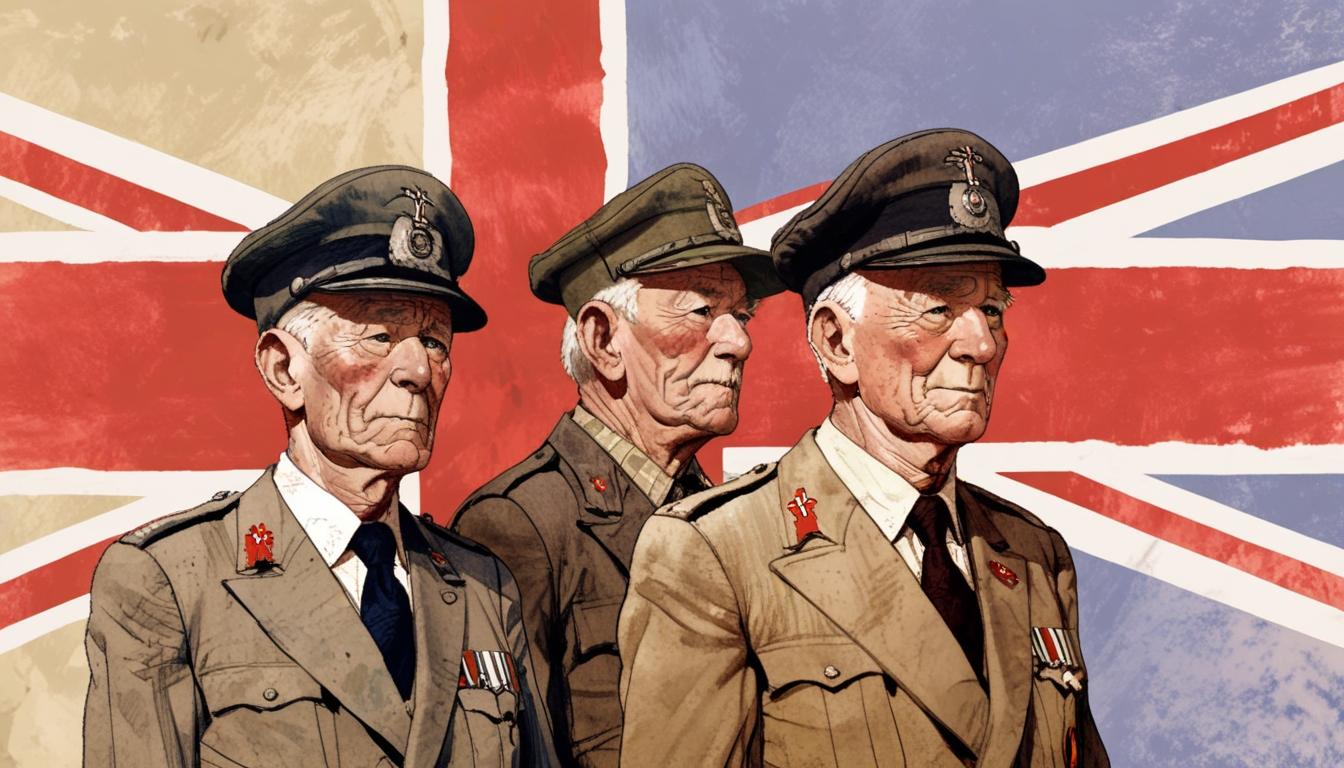A Generational Concern: World War Two Veterans and the Future of British Values
As the UK marks the 80th anniversary of Victory in Europe (VE) Day, the reflections of the nation’s dwindling cohort of World War Two veterans resonate with growing urgency. At a recent commemorative lunch hosted by a major political leader, three centenarians—Dorothea Barron, John King, and Jim O’Dwyer—expressed profound concerns about the erosion of traditional British values. This gathering was not merely a celebration; it served as a stark reminder of the values that defined an era, soon to be consigned to memory.
During the event, the leader, recognized for his ardent nationalism, articulated the worries shared by these veterans. "These individuals embody duty," he noted. "For them, family, community, and country were paramount." This sentiment captures the broader apprehension among many veterans regarding the current trajectory of British society. As they navigate the twilight years of their lives, the legacies of community and loyalty forged in wartime appear increasingly threatened. “They’re deeply concerned about the direction, the drift of this country. What troubles them most? Our values,” he added.
The gathering also underscored a troubling theme prominent in contemporary political discourse: the impact of immigration on national identity. The leader expressed his belief that the surge of immigrants over the past two decades has diluted Britain's core values, stating, “Many of those who have come do not share our principles.” This narrative posits that such dynamics have fostered a gradual erosion of British identity, leading to a nation “a little less British every day.”
The centenarians, particularly Barron, who served in the Women’s Royal Naval Service, reflected on societal changes with a blend of nostalgia and concern. Barron lamented a perceived decline in respect among younger generations, especially towards the values of duty and sacrifice epitomized during the war. Her sentiments resonated with the other veterans, who fear that today’s children are inadequately educated about the vital lessons of the Second World War.
In an era increasingly marked by multiculturalism and global interdependence, the veterans' calls for a renewed sense of national pride signify a yearning for the past. The leader proposed that this revival of patriotism must begin in schools, arguing that children should learn the true history of their country rather than being taught to feel ashamed of it. “We must teach our young about our past and our heritage,” he asserted, framing this educational shift as essential for preserving British identity.
The underlying narrative at this gathering of veterans is not merely one of nostalgia but a profound inquiry into the future of what it means to be British. With their experiences anchored in a transformative historical period, these veterans are not just witnesses to the past but champions for a more distinct national identity. As they voice their concerns about societal shifts, they challenge a broader audience to reflect on the values that have historically united the nation—a call that resonates acutely as the country navigates an increasingly complex and multi-faceted future.
In this era of change, the perspectives of those who fought for freedom and national identity remind us that values, much like history, are worth preserving and honouring, lest they fade into obscurity.
Source: Noah Wire Services
